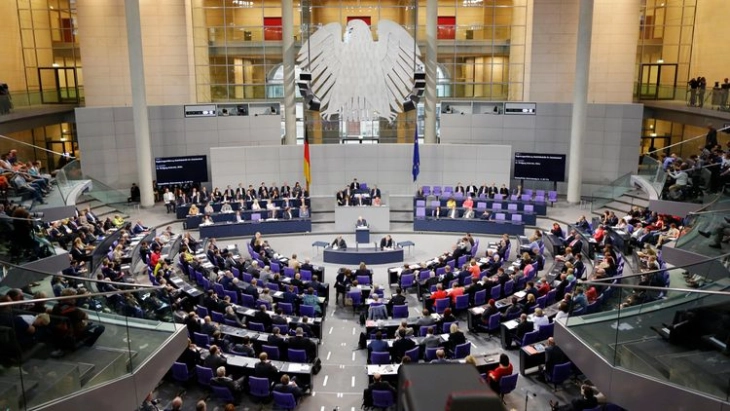German lower house approves landmark reform to shrink Bundestag
- Germany's lower house, the Bundestag, on Friday approved a landmark electoral reform to shrink its size and limit the body to 630 lawmakers.
- Post By Nevenka Nikolik
- 12:54, 17 March, 2023

Berlin, 17 March 2023 (dpa/MIA) - Germany's lower house, the Bundestag, on Friday approved a landmark electoral reform to shrink its size and limit the body to 630 lawmakers.
The proposal, backed by the ruling centre-left coalition of Social Democrats, Greens and Free Democrats, passed after a heated debate.
The conservative opposition CDU/CSU bloc as well as the far-left Die Linke party have both announced plans for legal challenges to the legislation in Germany's Constitutional Court, accusing the government of seeking to cement its own position in power.
CSU leader Markus Söder said the reform is "massive manipulation and also absolutely unconstitutional."
"This is a unique occurrence in the post-war history of the Federal Republic of Germany, that a majority in parliament carves out an electoral law exclusively for its own benefit," the Bavarian premier said on Friday.
For a viable reform of electoral law, he said, a large democratic consensus is important. "Anything else leads to division, to fault lines, to deep rifts," Söder said.
Ultimately, he said, it was not only an attack on democracy, but also a "hardcore attack" against the CSU. "Obviously, we are interfering in Berlin. It is an attempt to muzzle the South."
Up until now, Germany's electoral system has meant that the number of members in the Bundestag can expand depending on the election results.
German citizens cast two votes in the national parliamentary elections - one directly for a regional candidate and one for a party list, which determines the relative strength of the party in parliament.
If a party wins more votes via the first vote than it is entitled to based on the second vote, the number of seats may increase beyond the minimum of 598 to make sure each party has the right proportion of seats in the Bundestag.
The reform would get rid of so-called "overhang seats" or "balance seats" altogether. This means a candidate could win in their constituency directly and still not enter the Bundestag - which has disadvantages for the opposition parties in particular.







